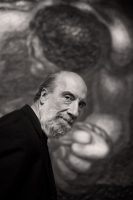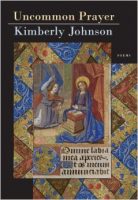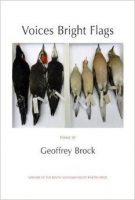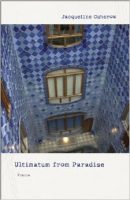October 22, 2014
Edited by David Sanders
Specimen Days
1071 – William IX, Duke of Aquitaine and poet (d. 1126), is born.
1870 – Ivan Bunin, Russia, poet/novelist (Gentleman from San Francisco-Nobel 1933), is born.
1882 – Janos Arany, Hungarians poet (Toldi Szerelme), dies at 65.
1898 – Damaso Alonso, Spanish poet (Hijos de la ira), is born.
1921 – Georges Brassens, French poet/cabaret singer, is born.
1954 – Jibanananda Das, Bengali poet (b. 18990, dies.
1978 – John Riley, English poet (murdered) (b. 1937), dies.

My everyday frantic passion,
My flower, my every instant angel,
I still eat the warm bread smelling of your batch,
Still submerged in God’s waters,
And in the blue breezes of the first day of Creation:
Tell me, my sweet love,
Tell me, unknown presence,
Are these 45 years’ mysterious company
Not enough to surrender, to reveal yourself
To your friend, your brother,
Your doleful lookalike?
—from “I” by Damaso Alonso (1898–1990)
World Poetry
Palestinian Poet Commemorated
The Arab Journalists and Intellectuals Forum and the Arab Writers Guild last night organised a commemoration ceremony in which they paid tribute to the late Palestinian poet Sameeh Al-Qassim in Hebron city in the West Bank. The participants in their speeches affirmed that the Palestinian people remain loyal to Sameeh Al-Qassim and other Palestinian poets and freedom fighters who lived under darkest conditions because of calamity, homelessness and destitution. More.
Stonehenge May Be Mentioned in 8th Century Poem
An 8th Century poem, thought to have been written about Bath, could be the oldest surviving text to describe Stonehenge, an academic has claimed. Mediaeval language expert Dr Graeme Davis said the poem could pre-date a previous text by several hundred years. The poem, called The Ruin, mentions stones called "the old ones" or the "elders" and describes a warm spring similar to one found at Blick Mead. Nearby Amesbury was recently named the oldest continuous settlement in the UK. More.
Longest Poem of Classical-era Unearthed in Western Turkey

Excavations around the Hecatomnus Mausoleum in the western province of Muğla’s Milas district have unearthed a written stela that dates back over two millennia. The stela is an extraordinary finding that offers very important data to historians and philologists, according to academics. More.
Recent Reviews
A Collection Of Poems That Offers An Unlikely Kind Of Hope

by Craig Morgan Teicher
If further proof is needed — though of course it is not — that the tensions exploding in Ferguson have been brewing for centuries, this book is, among other things, proof enough. In the clean, clear lyrics of his second book, Jericho Brown, who was born in Louisiana and formerly worked as speechwriter for a New Orleans mayor, laments, with no small sense of sad resignation, a muffled kind of anger, and a pinch of sarcasm, that, as an African-American man he finds himself admitting, "Nobody in this nation feels safe, and I'm still a reason why." More.
Broadsides
Variations on the Right to Remain Silent
by Anne Carson
Silence is as important as words in the practice and study of translation. This may sound like a cliché. (I think it is a cliché. Perhaps we can come back to cliché.) There are two kinds of silence that trouble a translator: physical silence and metaphysical silence. Physical silence happens when you are looking at, say, a poem of Sappho’s inscribed on a papyrus from two thousand years ago that has been torn in half. Half the poem is empty space. A translator can signify or even rectify this lack of text in various ways—with blankness or brackets or textual conjecture—and she is justified in doing so because Sappho did not intend that part of the poem to fall silent. More.
Epiphanies and Voids
by Pádraig Murphy
Attention to the apparently insignificant is a particular feature of Japanese art. It is an aspect of Zen’s emphasis on giving attention not to theory or to abstract truth, but to concrete, existing reality, the here and now.
A condition of complete simplicity
(Costing not less than everything)
TS Eliot, “Little Gidding” from Four Quartets
The Daitoku-ji complex in Kyoto is a Zen temple opened in 1305. The Kōtō–in, which is part of the complex, is associated with the Hosokawa clan, an ancestor of whom founded it in 1602, and since then, it is the burial site of the family. From time to time there hangs in the tokonoma, or ceremonial alcove, a scroll with a calligraphy motif which reads: “A bird cries. The mountain becomes more silent.” More.
My Disease Feels Beautiful to Me: On the Work of Raúl Zurita

by Magdalena Edwards
Raúl Zurita, born in Santiago in 1950, has published more than 20 books of poetry and received countless honors and prizes including Chile’s National Literature Prize in 2000. When he was two years old, his father died, leaving him and his infant sister in the care of their mother and maternal grandparents, who immigrated to Chile from Italy. The morning of Zurita’s father’s funeral, his grandfather died of a heart attack. His mother worked long days as a secretary while his grandmother looked after him and his sister. She spoke to her grandchildren about Genova and the Rapallo Sea, the Italian painters and musicians she admired, and, most of all, The Divine Comedy. In a recent interview in Uruguay’s El País with Ilan Stavans, Zurita says, “Instead of stories, [our grandmother] told us passages from the Inferno, which both terrorized and fascinated us.” More.
Place in Poetry: Concussive Reverberations
by Joan Hanna
When we look at the poetry of Lynda Hull, her poems seem to combine the backdrop of Di Piero and the internalization of Tretheway in her Collected Poems. And while the early poems are heavily textured, it’s easy to see, not only a change of perspective, but also a depth that developed in the poems written just before her death. More.
Drafts & Fragments
Poetry Book Fire Destroys Home, Woman Sentenced
A south-central Idaho woman set fire to a book of poetry that she made for her boyfriend. That fire spread, burning down his house. She has been sentenced to one to 10 years in prison. More.
No, ‘The Hurt Locker’ Movie Is Not Based on that Poem
by Ron Charles
If you’ve heard of the war poet Brian Turner, you know that his poem “The Hurt Locker” provided the title for Kathryn Bigelow’s Academy Award-winning film(2009). That fact appears all over the Internet. The Washington Post repeated it just last month. But when a reader asked me how we know that, I discovered a thicket of sourceless claims and cagey assertions. More.
Poetry Podcast: James Richardson Reads W. S. Merwin
On this month’s poetry podcast, James Richardson reads and discusses “A Single Autumn,” by W. S. Merwin. Richardson says that he admires the poet’s “need to live in a world where the simplest things had stories, where the stones in the garden were growing things for themselves.” More.
20 October (1939): James Laughlin to Kenneth Patchen

In fall of 1939, New Directions Press founder James Laughlin decided to take a brief sabbatical from the day-to-day management of his publishing house, and hired poet Kenneth Patchen to help fill in during his absence. Patchen, whose work New Directions also published, was to assume responsibility for “shipping, book-keeping, letters, addressing, filing, etc.” Apparently, things did not go as planned. Below, amid a flurry of all-cap exclamations, a gobsmacked Laughlin asked Patchen why numerous orders for NDP books remained unfilled at bookstores across the country. More.
Poetry In the News
Mining Newspapers for Poetry

What to do you get when you partner up a digital humanities projects librarian with an associate professor of computer science and engineering? Answer: Something good. At the University of Nebraska Elizabeth Lorang, research assistant professor and digital humanities projects librarian in the University Libraries has teamed with Leen-Kiat Soh, associate professor of the computer science and engineering, and a couple of students students to develop software to recognize poetry from digitized newspapers. “Millions of poems were published in newspapers. Looking at them will shift the way we understand poetry in the United States.” says Lorang. More.
Oklahoma City's Poetry Scene Is Lively, Growing

On a Wednesday night at the end of summer, in a dim, mural-covered annex room of Sauced, gray-haired men in faded and worn denim sit among a hodgepodge of old tables and chairs along with college guys sporting fraternity shirts, young lesbian couples holding hands, visual artists, waitresses, non-traditional students and construction workers — all there in the name of poetry. More.
New Books
Uncommon Prayer: Poems by Kimberly Johnson

[Paperback] Persea, 80 pp., $15.95
In this stirring third collection, bursting with spoken and unspoken desire, Kimberly Johnson continues her ecstatic intertwining of the liturgical and the rugged landscape of the American West. Uncommon Prayer is a book about desire, and about the ways in which desire can and cannot be expressed, contained, or controlled by language. Invoking the structural organization of the liturgical hours, the calendar, and the alphabet, Uncommon Prayer explores how external forms might compensate for the incommunicability of human want—that is, how the parts of expression that aren’t found in dictionary definitions might help to make up for what our words never quite manage to express.
The Barons by Joshua Corey
[Paperback ] Omnidawn, 120 pp., $17.95
The poems of The Barons span 10 years of struggle with the spirit of Romance in the face of world-historical catastrophe: 9/11, the wars in Iraq and Afghanistan, and the Great Recession. Once again we find ourselves in a waste land stained by spectacle, scabrous and benighted, a landscape populated by opportunists, idiots, amnesiacs, and chumps, unable to comprehend the disaster that has enfolded them. In spite of this the book is haunted by the ancient quest for reconciliation, for some kind of contact with the earth and with other people. From ironic pastoral to black satire to the gates of vision, this book enacts a 21st-century journey toward an elusive horizon of meaning and the paradox of “freedom’s law.”
The Collected Poems of James Laughlin edited by Peter Glassgold
[Hardcover] New Directions,1200 pp., $49.95
Finally collected are all the poems of James Laughlin — a classic poet of Catullan sensibility hiding in plain sight as an avant-garde publisher and the “Godfather of Modernism”
Published in his centenary year, The Collected Poems of James Laughlin encompasses in one majestic volume all of the poetry (with the exception of his verse memoirs, Byways) written by the publisher-poet. Witty, technically brilliant, slyly satiric and heartbreakingly poignant about the vagaries of love, Laughlin charted his own poetic course for over six decades prompting astonishment and joy in those fellow poets who had discovered his unique genius. As Charles Simic enthused, “The secret is out, the publisher of Williams and Pound is himself a great lyric poet.”
Voices Bright Flags by Geoffrey Brock

[Paperback] Waywiser Press, 120 pp., $20.00
Voices Bright Flags is a series of experiments in what is sometimes called public poetry, where the author's relationship with his country provides the main theme. The poems approach America from a range of perspectives – political, historical, and personal – and in a range of styles and voices, with each voice planting its own flag, as it were, implying its own America. Together the poems form a partial mosaic, a discordant chorus, a succession of conversations and quarrels between the author and the motley citizens of his imagination.
Don't Go Back To Sleep by Timothy Liu
[Paperback] Saturnalia, 80 pp., $15.00
Don’t Go Back To Sleep answers the Sufi call to wake up to this life in the here and now where ecstasy serves its summons, inviting us to break out of the mundane quotidian. Timothy Liu winds the clock back to the Nanking Massacre in 1937, then traces its consequences on his family of origin, his mother’s mental illness, his father’s religious fundamentalism, and Liu’s obsessive search for love. As trauma begets trauma the poems slowly accrete, and Liu takes on a legacy of poetic witness where carnal violence ultimately turns to spiritual joy.
Ultimatum from Paradise: Poems by Jacqueline Osherow

[Paperback] Louisiana State University Press, 104 pp., $18.95
In this collection, Jacqueline Osherow gives us perfectly formed, musical poems that glide between the worlds of art, architecture, literature, and religion. Traveling through Europe, Tel Aviv, and New York, Osherow observes with a keen eye the details of objects beautiful buildings and ancient artifacts and of the conversations and interactions she has with others. Finely constructed and always engaging, her poems uncover the startling truths of memory and coax our own forgotten moments from the recesses of the mind.
Correspondences
Rediscovering Regina Derieva

by Cynthia L. Haven
The Russian poet Regina Derieva was born on the Black Sea in Odessa, and enjoyed the shifting rhythms of the sea: “Water is the ideal apparel. However many times you get into it, it’s the same”. Her passion for water was shared by her epistolary friend, Joseph Brodsky, who grew up alongside St Petersburg’s canals and spent as much time as he could in Venice, where he is buried on the cemetery island of San Michele. Derieva, whom Brodsky called “a great poet”, viewed a very different landscape, however: from the age of sixteen, she lived obscurely in Karaganda, Kazakhstan, “perhaps the most dismal corner of the former Soviet Union – once the centre of a vast prison camp universe, later just a gloomy industrial city”, according to the distinguished Lithuanian poet Tomas Venclova. For him, Derieva’s precise, epigrammatic poems limn “the concentration camp zone, where space is turned into emptiness, and time turned into disappearance”. More.
Dylan Thomas: Rock ‘n’ Roll Poet

by Jane Ciabattari
Dylan Thomas, whose centenary is on 27 October, was a prodigy who became a living legend, the first poet to be magnified by celebrity culture – his words, voice, image and private life broadcast on an international scale through the 20th Century’s new media of radio, television, film and audio recordings. "Dylan Thomas's voice has added a new dimension to literary history,” the New York Times raved when he launched a US reading tour in 1950. “He will surely be remembered as the first in modern literature to be both a maker and speaker of poetry… the typical reader will become entranced after hearing him recite." More.
Lucia Perillo: World Class Poet

by Alec Clayton
Who knew we had a world-class poet right here in Olympia? Her name is Lucia Perillo. Her talent and prestige are remarkable. No less a luminary than Billy Collins, former Poet Laureate of the United States, said, “It is a delight to wander with [Perillo] into strange and imaginative territories. Always, I read her poems with surprise and (write it!) jealousy.” More.
Envoi: Editor’s Notes
Lessons from the Past: Hart Crane

"I have to combat every day those really sincere people, but limited, who deny the superior logic of metaphor in favor of their perfect sums, divisions and subtractions. They cannot go a foot unless to merely catch up with some predetermined and set boundaries, nor can they realize that they do nothing but walk ably over an old track bedecked with all kinds of signposts and 'championship records.' Nobody minds their efforts, which frequently amount to a great deal,–but I object to their system of judgment being so regally applied to what I'm interested in doing. Such a cramping cannot be reconciled with the work which you have done, and which I feel myself a little beginning to do. The great energies about us cannot be transformed that way into a higher quality of life, and by perfecting our sensibilities, response and actions, we are always contributing more than we can realize (rationalize) at the time. We answer them a little vaguely, first, because our ends are forever unaccomplished, and because, secondly, our work is self-explanatory enough, if they could 'see' it. I nearly go mad with the intense but always misty realization of what can be done if potentialities are fully freed, released."
—letter to Alfred Stieglitz (July 4, 1923)